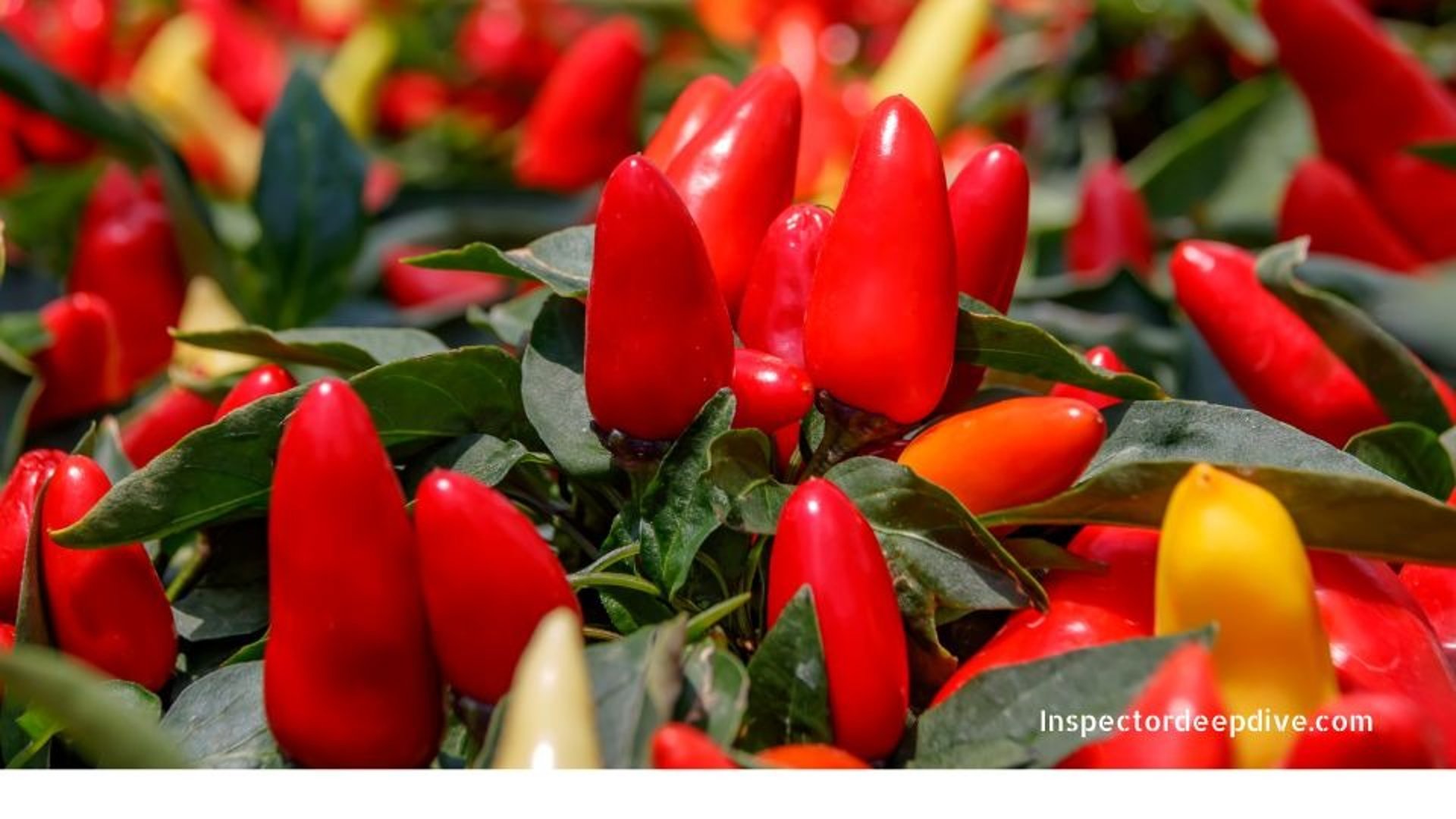
Chili Peppers: Health Benefits & Uses to Spice Up Your Life

Chili Peppers: Nature’s Fiery Fruit
Scientific Name
Capsicum annuum and other Capsicum species
Family
Solanaceae (the nightshade family)
Common Names
Chili pepper
Hot pepper
What Are Chili Peppers?
Chili peppers are the fruits of plants from the Capsicum genus. They are famous for their fiery heat, which comes from the compound capsaicin. Used in cuisines worldwide, chili peppers add distinctive spice, flavor, and depth to dishes, making them one of the most loved (and sometimes feared) ingredients in the kitchen.
Origins & History
Chili peppers were first cultivated in Central and South America more than 6,000 years ago. Spanish and Portuguese explorers later spread them across the globe, where they quickly became staples in Indian, Thai, Chinese, African, and European cuisines. Today, chili peppers are cultivated in warm climates everywhere and are essential to many traditional recipes.
Varieties of Chili Peppers
There are hundreds of chili pepper varieties, each with unique heat and flavor levels. Popular examples include:
Jalapeños – medium heat: versatile for fresh and cooked dishes
Habaneros – very hot; fruity undertones
Cayenne peppers – bold heat: often used dried or powdered
Bird’s Eye chilies – fiery: common in Asian cooking
Carolina Reaper – one of the world’s hottest peppers
Seasonality & Availability
Chili peppers thrive in warm weather and are typically harvested in late summer and fall. Thanks to global farming, they are available year-round in most grocery stores, but their flavor and freshness peak during the growing season.
Health Benefits of Chili Peppers
Rich in antioxidants – High in vitamin C, which supports immunity and collagen production.
Anti-inflammatory effects – Capsaicin helps reduce inflammation and may relieve pain.
Boosts metabolism – Can support weight management by increasing fat burn.
Digestive health – May protect the stomach lining, reducing the risk of ulcers.
The “Anti” Factors
Anti-inflammatory: Capsaicin reduces swelling and discomfort.
Antioxidant: Fights free radicals, protecting cells from damage.
Anti-cancer: Antioxidants may help lower risks of certain cancers over time.
Nutritional Breakdown (per 100 g raw chili peppers)
Vitamins
Vitamin C: 143 mg – immunity and collagen support
Vitamin A: 1079 IU – vision and skin health
Vitamin B6: 0.5 mg – supports brain and nerve function
Minerals
Potassium: 322 mg – fluid balance, heart health
Magnesium: 22 mg – energy and muscle support
Iron: 1.03 mg – helps carry oxygen in blood
Macronutrients
Water: 88 g – keeps you hydrated and supports cellular function
Energy: 40 kcal – low calorie content ideal for light meals or snacks
Protein: 1.9 g – provides essential amino acids for muscle repair
Total Fat: 0.4 g – mostly unsaturated fats, minimal contribution to daily intake
Carbohydrates: 8.8 g – includes natural sugars and dietary fibre
Dietary Fibre: 1.5 g – promotes digestive health and satiety
Sugars: 5.3 g – naturally occurring sugars like glucose and fructose
Risks of Eating Chili Peppers
Skin and eye irritation – Capsaicin can create a burning sensation.
Digestive issues – Overeating may cause stomach pain or reflux.
Medication interactions – Chili and supplements may interfere with blood thinners or pain medications.
How Chili Peppers Affect the Body
Boosts metabolism through fat burning.
Triggers endorphins (happy hormones) that can improve mood.
Supports immunity with antioxidants.
Who Should Be Cautious?
People with sensitive stomachs or gastrointestinal issues.
Those who are prone to food allergies.
Anyone sensitive to spicy foods.
Surprising Facts
Chili peppers are fruits, not vegetables!
They have been used for medicinal purposes for centuries.
That “sweating” after eating hot food? It’s your body’s way of cooling itself.
Environmental Impact
Chili peppers are relatively eco-friendly, requiring less water than most crops. However, monoculture farming (large single-crop farming) can reduce soil nutrients. Choosing organic, locally-grown peppers helps support the environment.
How to Use Chili Peppers
Eat fresh, dried, or powdered to spice up soups, sauces, and marinades.
Try them pickled, roasted, or stuffed for new flavors.
Mix into homemade salsa, hot sauce, or chili oil.
Best Time to Enjoy
Chili peppers are at their most flavorful in late summer and fall, though they’re available year-round in most stores.
Storage & Shelf Life
Fresh peppers – keep in the refrigerator (in a plastic bag to retain moisture).
Dried or powdered – store in a dark, cool cupboard, lasting up to 6 months.
Kitchen Tips & Label Shopping
Wear gloves when cutting hot peppers to avoid skin irritation.
Remove seeds and white membranes if you want less heat.
When buying blends, check labels for added salt or preservatives.
Choose organic peppers to reduce pesticide exposure.
Recipe Ideas
Spicy salsa with tomatoes, onions, and jalapeños
Healthy homemade sweet chili sauce
Stuffed poblano peppers with cheese and rice
Fresh hot sauce with cayenne peppers
Chili oil for stir-fries and dressings
Science Behind the Heat
Capsaicin interacts with TRPV1 receptors in your mouth (the same ones that detect heat). This tricks your body into thinking it’s hot, making you sweat to cool down. The same action that causes the burn is what also gives chili peppers their pain-relieving and anti-inflammatory power.
FAQs
Are chili peppers healthy?
Yes. They are low-calorie, nutrient-rich, and full of antioxidants.
Can chili peppers harm you?
Only if eaten in excess. Too much can upset your stomach or irritate your skin.
How do you keep chili peppers fresh?
Store in the fridge for a week, or dry/powder them for longer storage.
Final Word
Chili peppers are more than just spice. They are nutrient-packed fruits with a long history, offering flavor, health benefits, and cultural importance around the world. Whether you sprinkle a little cayenne into a sauce or cook up a fiery curry, chili peppers will always bring warmth, energy, and excitement to your food.
Chili Peppers: Health Benefits & Uses to Spice Up Your Life
info@inspectordeepdive.com
© 2025 food.InspectorDeepDive.com. All rights reserved. Content may not be copied or republished without permission.
This article is for informational purposes only. InspectorDeepDive.com does not provide medical advice. Always consult a licensed healthcare provider before making dietary or health decisions.
